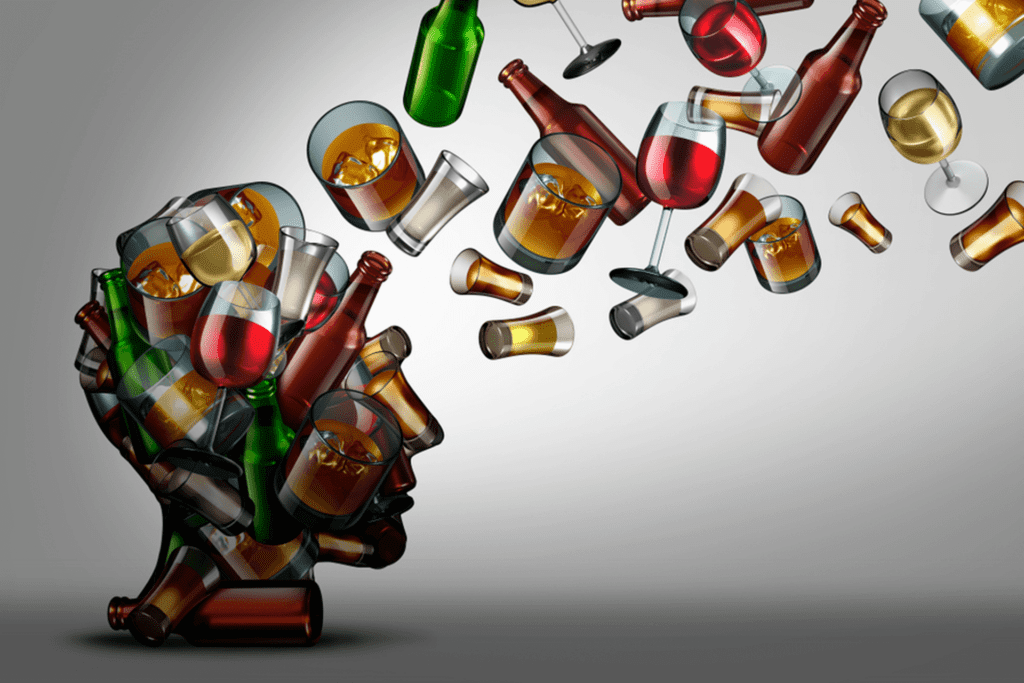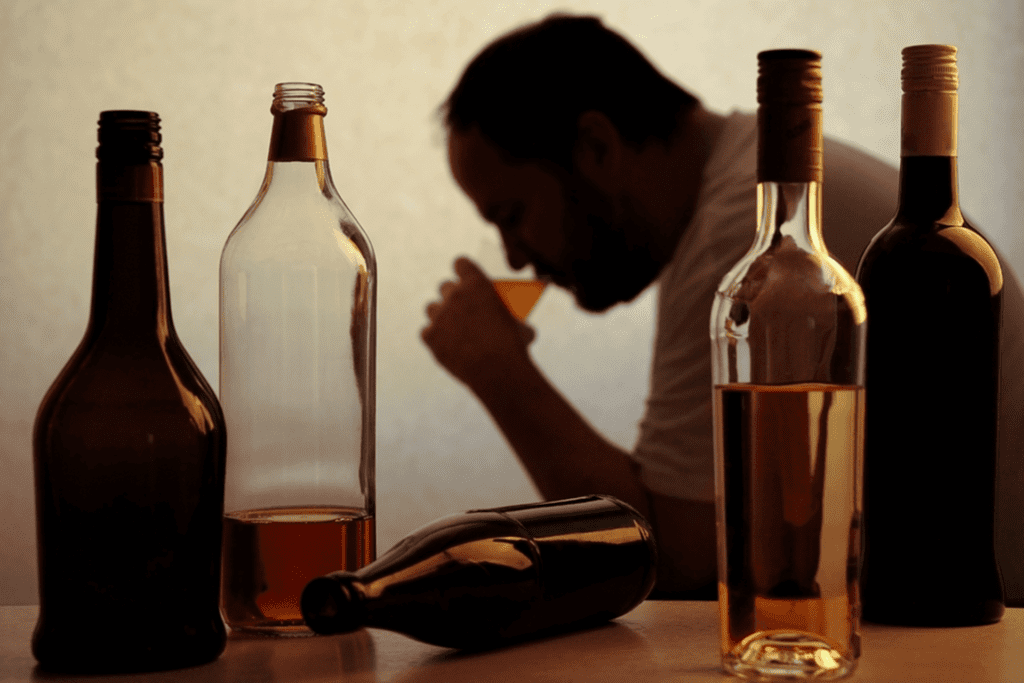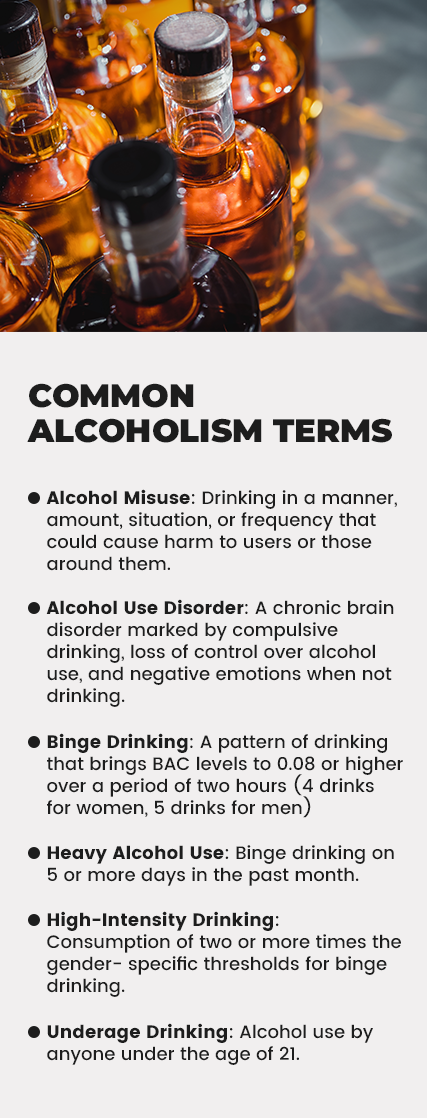Alcohol is considered a psychoactive substance that has dependence-producing properties, according to the World Health Organization (WHO). Over consuming alcohol on a regular basis can cause a person to become an alcoholic or develop an alcohol dependence.
An alcoholic is defined as a person who has a psychological and physical reliance on alcohol. In other words, the individual is dependent on alcohol and can easily experience withdrawal symptoms such as nausea, insomnia, irritability, shakiness and strong urges to drink. An alcoholic can be considered someone with alcohol dependence or alcoholism.
When are you considered an alcoholic?
An alcoholic is a person who can not control their drinking, they crave alcohol and they continue to drink despite knowing the negative effects that drinking has on physical and mental health.
CAUSES OF ALCOHOLISM
An individual can develop alcoholism regardless of age, gender, body size and background, but some individuals are predisposed to alcoholism more than others based on some of those factors. Many internal and external factors play a role in an individual being at risk for developing an alcohol dependence or becoming a functioning alcoholic. Several factors can affect how an individual’s body reacts to alcohol. Those factors include:
- The number of drinks you consume
- How fast you drink
- If you ate before drinking
- Which food and drink you had with alcohol
- Genetics
- Gender, body size and hormonal levels
- If you are ill
- Amount of sleep
- Medications you are taking
- Liver health
Some internal factors include mental health conditions such as bipolar disorder, depression and even social anxiety.
Binge drinking and heavy alcohol use are two types of pattern drinking that can potentially lead to Alcoholism. The National Institute on Alcohol Abuse and Alcoholism (NIAAA) defines binge drinking as when a person consumes enough alcohol to reach 0.08 blood alcohol concentration level, which equates to 5 drinks for a male and 4 drinks for a female in the span of 2 hours. Heavy alcohol use is defined as binge drinking 5 or more days in the past month.
According to the 2019 National Survey on Drug Use and Health, 14.5 million people age 12 or older have Alcohol Use Disorder in the United States. This includes 9.0 million men and 5.5 million women.

ALCOHOLISM VS. ALCOHOL USE DISORDER
Clinically, Alcoholism is diagnosed as Alcohol Use Disorder (AUD). In the Diagnostic and Statistical Manual of Mental Health Disorders (DSM-5) published by the American Psychiatric Association, they defined AUD as a chronic relapsing brain disease characterized by an impaired ability to stop or control alcohol use despite adverse social, occupational or health consequences. AUD can range from mild to severe and recovery is possible regardless of severity. Doctors use a list of eleven key symptoms published by the DSM-5 to determine which classification an individual falls under. The eleven symptoms are:
- Unable to cut down on your drinking
- Ended up drinking more alcohol than intended, or drank for longer than intended
- Felt overwhelmed by urges to have another drink, struggling to concentrate
- Spent a significant amount of time drinking and recovering from the effects of drinking
- Found that your drinking has led to problems at work, school or in the home
- Consuming alcohol in physically hazardous situations
- Expressed less interest in activities or hobbies you used to enjoy
- Continued to drink despite it causing trouble with family, friends or loved ones
- Experienced problems with physical or mental health due to how much you drink or have experienced memory blackouts
- Noticed you have to drink more than you used to in order to experience the same effects
- Experienced symptoms of withdrawal when the effects of alcohol have worn off
The three classifications are:
- Mild- two to three symptoms
- Moderate- four to six symptoms
- Severe- six or more symptoms
Formally, AUD was split into two distinct disorder categories: alcohol abuse and alcohol dependence. Alcohol abuse was the milder form of disorder due to the individual not being reliant on alcohol. Alcohol dependence is the disorder most in line with alcoholism as laid out in the DSM-IV but with the release of the DSM-5 in 2013, that edition integrated the two disorders into a single disorder known as AUD. AUD is considered a type of substance abuse and is the most common type of substance use disorder in the United States.
Alcoholism and Alcohol Use Disorder (AUD) are both terms used to describe problematic drinking behavior, but there are some differences between the two. Alcoholism is an older term that is often used to describe an addiction to alcohol, where an individual is physically and psychologically dependent on alcohol.
AUD (Alcohol Use Disorder) on the other hand, is a clinical diagnosis that is characterized by problematic patterns of alcohol use, usually leading to significant impairment or distress.
The key difference between the two is that AUD is a spectrum disorder, with mild, moderate, and severe forms, while alcoholism tends to imply a severe form of AUD. Both conditions can have serious consequences and require professional treatment and support.
RECOVERY FROM ALCOHOLISM OR ALCOHOL USE DISORDER IN CA
Recovery is possible from Alcohol Use Disorder, but it can be a long journey to get there and it is a lifetime commitment. The individual must first realize there is an issue and want to get sober. The credentialed and experienced team at Gratitude Lodge can help you determine your next steps. Our luxurious recovery centers in Newport Beach and Long Beach, CA offer help with detox and alcohol addiction recovery where you can learn to live a sober and healthy life. Contact the team at Gratitude Lodge today for more information. We can answer your questions regarding detox, recovery programs, insurance, and more!





























